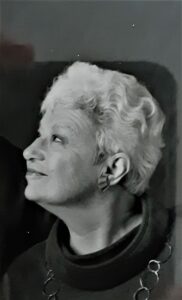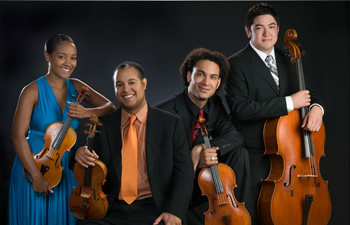Elaine Lorber, longtime Director of Arts for the City of Raleigh, died at her home in Chapel Hill on October 12th, just one month short of her 92nd birthday. According to her daughter Bethany, the cause was ovarian cancer.
Ms. Lorber was a relative unknown in arts administration when she was appointed director of the Raleigh Little Theatre in 1977, the year she moved to North Carolina from New York. Her only prior job in the arts was part-time with a similarly small theatre company in Long Island, New York. When the newly created City of Raleigh Arts Commission advertised for a director in 1979, Ms. Lorber applied with literally scores of others. Despite her scant experience, she was chosen to be the commission’s first executive director, a position she held for 16 years until her retirement in 1995.
Ms. Lorber was a tireless champion of the arts, of artists, and of Raleigh’s arts organizations. An inspired visionary, she promoted and expanded Raleigh’s cultural resources and helped formulate a long-range plan for the city’s thriving cultural climate. A tenacious advocate, she devoted countless hours to ensure that arts facilities and programs were and are accessible to persons with disabilities. A demanding mentor, she helped countless artists find work and assisted numerous arts programs in becoming self-sustaining. A passionate arts supporter, she attended virtually every exhibition opening, performance, and festival given during her tenure. Ms. Lorber earned her reputation as an invaluable resource for strategic planning and programmatic decisions. She was instrumental in establishing many of the city’s most valued arts institutions: Arts Access, Artspace, Artsplosure, and the Contemporary Art Museum – formerly the City Gallery of Contemporary Art. Through her leadership, the Arts Commission helped organize a separate non-profit vehicle called the Raleigh Arts Foundation, now a component of the United Arts Council of Raleigh and Wake County. She persuaded the City to fund a public art program that places commissioned art works at strategic points throughout the city. Through the Arts Commission, she helped create the Capital City Performing Arts Center, a private nonprofit board that led to establishment of a performing arts center in downtown Raleigh. She led the creation and establishment of CORAC’s nationally-recognized arts grant initiative which, through a per capita mechanism, has pumped millions of dollars into nonprofit arts organizations, large and small, enabling them to flourish throughout the city. Over the years, she encouraged individuals, organizations, and institutions to cooperate and to coordinate their efforts. Her legacy is clear throughout Raleigh’s thriving arts community and its immense array of artistic offerings.
Yet Ms. Lorber took little credit for these accomplishments. She preferred to let the Arts Commission, City Council members, arts organizations, and artists themselves take the bows. The Arts Commission’s formal presentation to her of the Raleigh Medal of Arts in 1999 – an award that was founded under her guidance – was one of the few public honors she permitted during her distinguished professional career. Truly she advanced, promoted, encouraged, supported, funded, and – when all was said and done – loved the arts.
Elaine Gruber was born in the Bronx, NY, in 1928 to Herbert Gruber and Helen Weiss. The marriage lasted only a few years and she found herself the only child of a single parent who had few resources or skills to support the two of them. Truly a child of the Depression, she and her mother literally lived hand to mouth through most of the 1930s. As a small child, she and Helen moved often to avoid paying rent they could not afford. She told stories of going to automat restaurants where they would eat packets of mustard and ketchup for sustenance, until Helen remarried a man of some means. In high school she was passionate about the theatre and was very active in her high school’s drama club. She went on to earn a Bachelor’s of Science degree in Speech Pathology from Queens College. In 1949 she married Murray Lorber with whom she had five children. She fell into the trap that many intelligent, well-educated post-war wives found themselves: wives to working husbands whose lot was to take care of the house and kids with little intellectual outlet, a difficult situation for a woman of significant intellect. She studied the harp and took sculpting lessons for many years (she left behind numerous pieces of sculpture in stone) but never had a job until after most of her children had left home for college. It was then that she began her working life in the arts and hit her stride after moving to North Carolina in 1977. After her retirement in 1995 both she and her husband continued to support the arts in Raleigh by attending art gatherings, art shows and galleries, too many trips to the North Carolina Museum of Art to count, other regional museums, musical events, plays, musicals, etc. A voracious reader of literary fiction all of her life, she kept a meticulous record of what she read. In one of her record booklets she recorded 496 novels she read between 2003 and the day she died. In her last few years she limited herself to reading only Pulitzer Prize, National Book Award, and Booker Prize winners.
Ms. Lorber is survived by her sons Danny and Fred, and her daughters Bethany and Connie. A fifth child, Amy, predeceased her by one month. Her husband, Murray, died in 2016.













